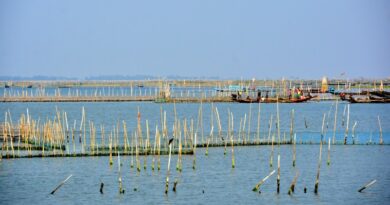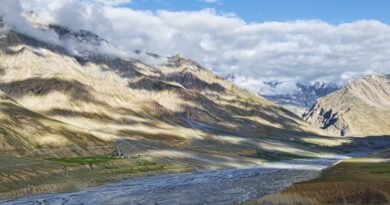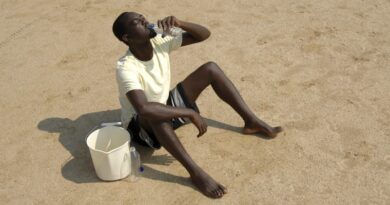Rural India still far away from piped water connections, finds NSS

Nearly 80 per cent of Indian households are still without piped water connection and in rural areas, members from over 40 per cent of the households have to travel every day to fetch drinking water, the recently released report of 76th round of National Sample Survey (NSS) has revealed.
The survey states that only 21.4 per cent households in India have piped drinking water connections, with the situation being worse in rural areas, where just 11.3 per cent of households receive potable water directly at home.
Close to 42 per cent rural households travel every day to fetch drinking water – they cover distances ranging from less than 0.2 km (30.4 per cent households) to over 1.5 km (0.5 per cent households) one way.
While 19.3 per cent urban households travel every day to fetch water, just 0.6 per cent of urban households travel more than 1.5 km a day one way to get water.
The time spent by households every day to source water is disturbing. Close to 10.5 per cent rural households spend more than 30 minutes to fetch water every day, which roughly translates into 15 hours a month to get drinking water.
The all-India figure is marginally better at 9.6 per cent households. In urban India, 5.7 per cent households spend more than 30 minutes a day to fetch drinking water.
Hand pumps continue to be the major source of drinking water for rural households – 42.9 per cent of households in rural areas use hand pumps as the principal source of drinking water.
On the other hand, urban India largely gets piped water supply, where 40.9% of households in the urban areas use piped water as the principal source, the survey conducted by the Union Ministry of Statistics and Programme Implementation (MOSPI) said.
“About 48.6 per cent of the households in the rural and about 57.5 per cent in the urban areas had exclusive access to principal source of drinking water. About 87.6 per cent of the households in the rural and about 90.9 per cent in the urban areas had sufficient drinking water throughout the year from the principal source. About 58.2 per cent of the households in the rural and about 80.7 per cent in the urban areas had drinking water facilities within the household premises,” the NSSO survey noted.
The NSSO survey report comes at a time when the Centre has promised to provide piped water connection to every household by 2024 under the ‘Nal Se Jal’ scheme.
The MOSPI had conducted the survey on household social consumption related to drinking water, sanitation, hygiene, and housing condition as part of the 76th round of National Sample Survey (NSS). The present survey was spread across the country and for the central sample, data were collected from 106,838 households (63,736 in rural areas and 43102 in urban areas) from 5378 sample villages in rural areas and 3614 sample urban frame survey (UFS) blocks in urban areas.
According to the survey, 94.5 per cent of the households in the rural and 97.4 per cent in the urban areas used ‘improved source of drinking water’ such as bottled water, piped water into dwelling, piped water to yard/plot, piped water from neighbour, public tap/standpipe, tube well, hand pump, protected well, public tanker truck, private tanker truck, protected spring and rainwater collection.
The survey showed that 51.4 per cent of households in rural areas and 72 per cent in urban areas used improved source of drinking water, sufficiently available throughout the year located in the premises.
On bathroom and sanitation facilities across India, the survey noted that about 50.3 per cent of the households in the rural and about 75 per cent in the urban areas had exclusive access to bathroom.
Also, about 56.6 per cent of the households in rural and about 91.2 per cent in urban areas had access to bathroom. Among the households which had access to bathroom, about 48.4 per cent in the rural areas and about 74.8 per cent in the urban areas used bathroom attached to the dwelling unit.



